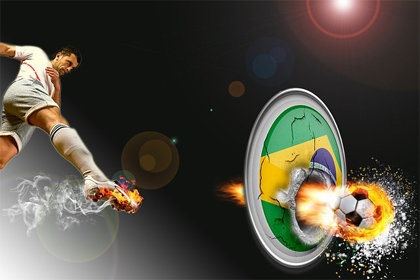World footballer Neymar won today in the trademark dispute over his own famous name before the European Court. The word mark NEYMAR was registered as a trade mark in 2012. Today’s judgment confirms the declaration of invalidity of that mark and also finds trademark filing in bad faith.
NEYMAR registered as word mark
 The case began in 2012, when Mr Carlos Moreira applied for the word mark NEYMAR at the European Office for International Protection of Intellectual Property (EUIPO) – in Nice Class 25 for “clothing, footwear, headgear”. The desired trade mark application was published in the Community Trade Marks Bulletin.
The case began in 2012, when Mr Carlos Moreira applied for the word mark NEYMAR at the European Office for International Protection of Intellectual Property (EUIPO) – in Nice Class 25 for “clothing, footwear, headgear”. The desired trade mark application was published in the Community Trade Marks Bulletin.
The famous footballer Neymar Da Silva Santos Júnior, known as Neymar, filed an application for a declaration of invalidity pursuant to Article 52(1)(b) of Regulation No 207/2009 against the registration of the mark applied for, which was upheld by the Opposition Division of the EUIPO and confirmed by the Board of Appeal of the EUIPO.
Judgment of the European Court
In today’s judgment, the European Court (CJEU, Court of First Instance CFI) upholds the previous decisions and finds that the trade mark applicant acted in bad faith in filing an application for registration of the mark Neymar. That was the only plea raised by the trade mark applicant, who rejected a malicious trade mark application.
Bad faith requires legal interpretation
Article 52(1)(b) of Regulation No 207/2009 provides that an EU trade mark must be declared invalid on application to the EUIPO or on the basis of a counterclaim in infringement proceedings if the applicant for registration acted in bad faith when filing the application for registration of that trade mark.
However, the concept of bad faith in this regulation is not defined, delimited or even described, but requires legal interpretation. The Lindt & Sprüngli judgment of 2009 made it particularly clear that the applicant’s intention to register at any given time is a subjective factor to be determined by reference to the objective circumstances of the individual case (see, by analogy, judgment of 11 June 2009, Chocoladefabriken Lindt & Sprüngli, C-529/07, EU:C:2009:361). The concept of malicious intent and bad faith thus refers to a subjective motivation of the applicant, namely a dishonest intention or other dishonest motive.
In today’s ruling (EU:T:2019:329), the European Court of Justice specified that the conduct in question deviates from the recognised principles of ethical conduct or honest business and commercial practices.
Was Neymar a well-known footballer in 2012?
In the present case, the trade mark applicant argued that, in filing the trade mark application Neymar, he did not see any connection at all with the world footballer, but chose the trade mark merely because of the phonetic sound. It was not until 2013 that Neymar switched to FC Barcelona.
The court rejected that argument. Neymar had already been recognised as a promising footballer and compared with the most prestigious footballers at the time before joining FC Barcelona in 2013, the court clarified. The trademark applicant made himself completely untrustworthy by claiming that he had little knowledge of the football world and that he had no idea that Neymar 2012 was a well-known up-and-coming footballer. For it has been shown that on the same day as the application for the word mark NEYMAR was filed, Mr Moreira also applied for registration of the word mark IKER CASILLAS – also a famous footballer.
The CJEU therefore considered the plaintiff’s dishonest intention to be proven at the relevant time and found a malicious act in the trademark application. In its judgment, the Court also upheld the declaration of invalidity of the mark NEYMAR.
Would you also like to protect or defend your trademark or brand?
Our lawyers are experienced in trademark and patent law, national and international law.

Sources:
European Court “NEYMAR” EU:T:2019:329
Picture:
Karlnapp75/pixabay.com / CCO License







Leave a Reply